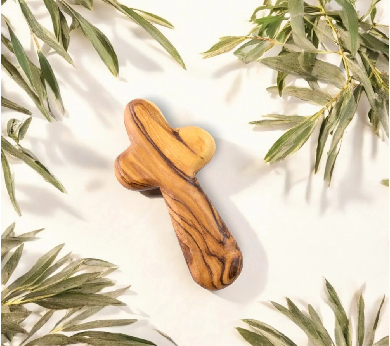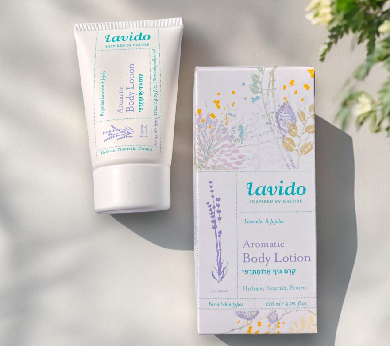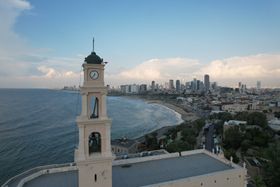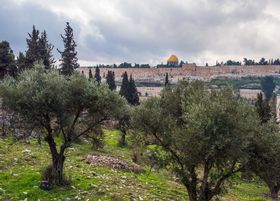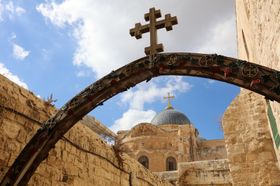Israeli Dress Code for Tourists: From Hikes to Dinners & Beaches
Dress with modesty and respect as you walk in the footsteps of Jesus. We offer practical tips on navigating the Israeli dress code for Christian travelers, from holy sites to everyday adventures.
Published December 24, 2024.
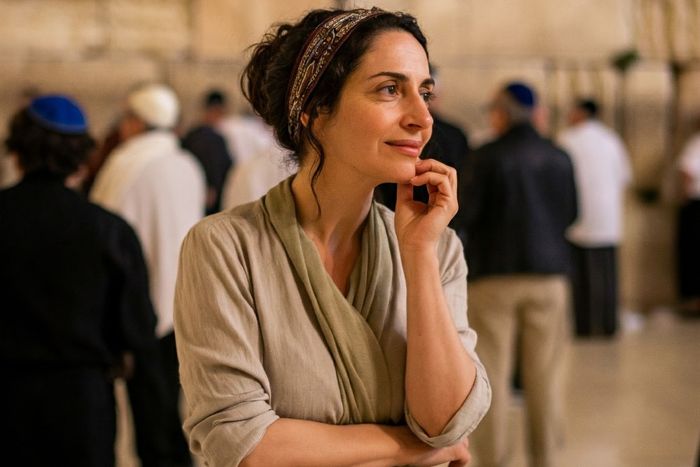
Are you excited to explore Israel? Fantastic! But as a Christian traveler, dressing modestly and respectfully is essential. You'll be visiting holy sites, encountering diverse communities, and experiencing a range of activities—all calling for thoughtful attire.
Picture this: feeling out of place or even causing offense due to immodest clothing. As followers of Christ, we're called to be mindful of our appearance and show respect for the local customs.
Below, we'll provide practical tips on navigating the Israeli dress code for Christian travelers. From covering shoulders and knees at religious sites to choosing appropriate clothing for different occasions, we'll help you dress modestly and confidently.
» Bring the beauty of Israel home with handcrafted accessories
Understanding Israel's Distinctive Dress Code
Israel has unique cultural, religious, and social norms. While Israelis often dress practically, you should consider the expected dress code to blend in. Understanding what's acceptable and unacceptable attire is crucial.
In cities, tourist dress codes may be less conservative than in religious areas. Expectations for women's attire can also differ significantly from men's in certain places. When packing for your trip, remember to adjust your clothing choices based on your planned activities and destinations.
» Hike the Israel National Trail with our expert guide
Consequences of Inappropriate Attire in Israel
Ignoring Israel's dress code can have consequences.
- Religious Sites: Modesty is crucial, especially at places like the Western Wall. Cover shoulders, arms, legs, and chest. Men should wear a head covering (kippah or hat), while women may need to use a shawl. Inappropriate clothing may prevent entry.
- Orthodox Jewish Neighborhoods: Residents prefer a conservative dress, so cover shoulders, arms, and knees. Immodest clothing can offend. Please be careful when visiting areas like Bnei Brak.
- The Knesset (Israel's Parliament): Avoid casual clothes like crop tops and ripped jeans. Opt for a formal attire to avoid being denied entry.
» Discover facts about the Holy Land that you probably didn't know.
What to Wear in Israel: A Guide for Tourists
Religious Sites, Festivals, and Holidays
When visiting religious sites in Israel like the Church of the Holy Sepulchre, the Mount of Olives, or the Western Wall, modest clothing is essential. This means covering your shoulders, arms, chest, and knees. Women may want to carry a scarf for extra coverage, and men should generally wear long pants.
Consider dressing appropriately for religious festivals and holidays. For example, blue and white are common colors during Hanukkah. If invited to a Passover Seder, dress modestly and slightly formally. As a general rule, avoid revealing clothing at religious sites and events to respect conservative values.
Urban Areas and Public Transportation
Casual clothing is perfectly fine in these secular cities. You can wear jeans, t-shirts, pants, shorts, crop tops, and sundresses. This also applies to public transportation. But, if you're coming from the beach, change out of your beachwear before entering public spaces or using transportation out of respect for all residents.
While Jerusalem is a city, it's more conservative than other urban areas in Israel. Avoid extremely casual clothing like shorts, strapless tops, and short skirts. Opt for more modest attire.
The dress standards are more conservative here. Men should wear long pants, and women should wear loose-fitting skirts or dresses that fall below the knees and cover their shoulders, chest, and elbows.
» Find the perfect Jerusalem souvenir to remember your trip
Hiking and Outdoor Activities
Comfortable clothing is key for outdoor activities and hiking. During the hot summer months (June-September), wear lightweight linen or cotton, but consider long-sleeved sports shirts for sun protection. Zip-off pants offer versatility. Sunglasses and brimmed hats are also essential.
In cooler months (December-March), bring light jackets. No matter the season, pack comfortable hiking boots or sneakers, and consider bringing swimwear if you might have a chance to swim.
» Plan the perfect trip with our month-by-month guide to visiting Israel
Bedouin Camps or Desert Excursions
- Summer (June-September): Temperatures can soar, sometimes reaching 48°C (118.4°F). Wear light clothing, such as sleeveless shirts and shorts.
- Winter (December-early March): Temperatures drop to 10-15°C (50-60°F) in most cities but can be colder in the desert (as low as 7.5°C/45.5°F). Pack light sweaters.
Bedouin culture values modesty. Both men and women typically cover their legs, arms, neck, and hair. When visiting Bedouin camps, especially in the Negev desert, dress conservatively. Women should avoid revealing clothing and consider bringing a shawl for extra coverage.
» Experience the history of Masada come to life
Beaches and Resorts
Standard swimwear is perfectly acceptable at beaches and resorts in Israel. This includes bikinis and one-piece swimsuits for women and swimming trunks or shorts for men. You can also wear casual clothing like crop tops, shorts, t-shirts, and sandals while relaxing on the beach.
Note: Remember to be mindful of local customs when leaving the beach. A light cover-up, like a beach dress, is recommended for women
Evenings Out
When you plan an evening out in Israel, your attire should reflect the local culture. In cities like Tel Aviv, smart casual clothing like jeans and a stylish blouse is suitable for women.
But, in more religious areas such as Jerusalem, dress slightly more formally and avoid revealing clothing. During cooler seasons, bring a wrap for women or a light jacket for men.
» Discover the treasures of the Jaffa Flea Market with our guide
Military or Border Areas
Israel shares borders with several countries, including Egypt, the Gaza Strip, Jordan, Lebanon, and Syria. These neighboring nations are predominantly Muslim and have conservative social norms.
When crossing these borders, dress modestly. This is especially important for women, who should avoid revealing clothing to prevent unwanted attention or reactions. Carrying a light shawl for extra coverage is a good idea. Men should also choose modest attire.
» Follow in Jesus' footsteps and explore the countries he may have visited
Essential Carry-Alongs: Be Prepared for Anything
To be prepared for unexpected situations in Israel, both men and women should pack a few key items.
- For women, this includes a loose scarf for covering up in conservative areas, sandals for warm weather, a warm shawl for cooler temperatures, sunglasses and sunscreen for sun protection, loose-fitting below-the-knee skirts, a variety of blouses, and a pair of jeans (avoid ripped ones in conservative areas).
- Men should pack a hat for religious sites, sandals, a light jacket, sunglasses and sunscreen, casual pants, button-down shirts, and a pair of jeans (again, avoid ripped ones in conservative areas).
» Explore the mountains of the Bible and plan your pilgrimage
Keep the Journey Alive
So pack your bags with confidence and get ready to experience the magic of Israel! With this guide as your companion, you'll be prepared for every adventure, from exploring ancient ruins to relaxing on sun-drenched beaches.
Shalom, and have an amazing trip! If you want to bring a piece of Israel home with you or continue exploring its rich heritage, be sure to check out the Artza store for unique gifts inspired by the Holy Land and its people.



